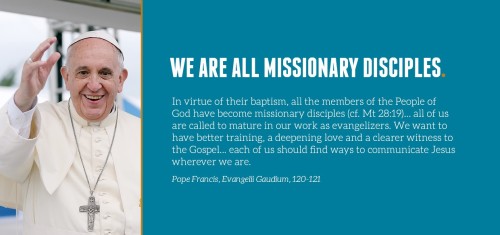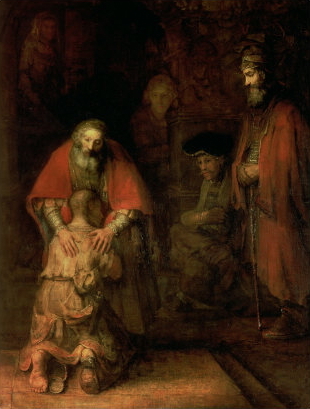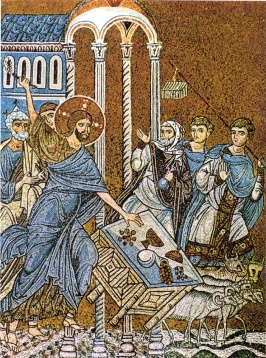Today is supposed to be a great and joyful feast in honour of the glory of Mary and the triumph of God’s mercy in her life, in her very being. Mary is assumed into heaven body and soul because of her sinlessness, because of her immaculate conception.

The Assumption of the Virgin (1612-17), by Peter Paul Rubens
And yet, today the Church finds herself in mourning, covered with shame, confusion and hurt. And not because of anything that has happened to her from the outside, but because of the failings of her very own shepherds. It pains me to speak about this today on this joyful feast – it makes me cry even just to think about it –, but speak I must, because silence is what created this mess in the first place. I’m speaking here, of course, of the newest wave of clerical sexual abuse and misconduct that is being revealed in these days. And it’s not just an isolated case or even many, but the systematic nature of these abuses and the depth to which they were rampant. And I fear that we’ve only just touched the tip of the iceberg in this matter. What a contrast to the very nature of our feast today.
You see, Mary’s glory is that she, in her person, reveals the very destiny for which every person has been created. We’ve been created not for sin and depravity, but for holiness and righteousness; we’ve been created to reflect the very holiness and perfection of God, and the reward for that holiness is the beatific vision, union with God in heaven for eternity. Mary’s assumption into heaven is what God created each one of us to experience. Now, as children of Adam, we lost that gift through original and personal sin.
But as St. Paul reminds us in the second reading, Jesus has restored this gift (albeit in a modified form) by bringing us the gift of mercy, forgiveness and the outpouring of the Holy Spirit: since death came through a man; for all die in Adam, so all will be made alive in Christ (1 Cor 15:21-22). But Christ’s gift of grace isn’t magic; we aren’t restored unless we repent, and we aren’t made holy unless we allow the Holy Spirit to work in us, to change our hearts and our lives. We must do the works of the Father in order to inherit the Kingdom of God; we must be holy for God is holy.
We must allow the Holy Spirit to put to death the sin that lies in our hearts, or else it will reign there, and we will be lost. This is exactly what we’re seeing again in these days, what happens when people allow sin to reign in their hearts. This is all the more painful and devastating when Priests – men who have been consecrated to God, for His service, for His people – allow sin to take hold of their hearts.
In our first reading from the Book of Revelation, we hear that the great Dragon swept a third of the stars down and waited to devour the son of the Woman (Rev 12:4). If we continued reading the vision, St. John tells us that after being defeated, the Dragon was angry with the woman, and went off to make war on the rest of her children, those who keep the commandments of God and hold the testimony of Jesus (Rev 12:17). We’ve seen and experienced these attacks since the beginning of the Church, but almost always from the outside. As Jesus said, ‘If the world hates you, be aware that it hated me before it hated you. If you belonged to the world, the world would love you as its own. Because you do not belong to the world, but I have chosen you out of the world – therefore the world hates you (Jn 15:18-19).
But now we’re seeing very clearly that the Dragon has entered the Church and is pursuing God’s children from within. And it’s important for us to realise that these crimes are attacks on the Church and attempts to destroy her from within. In many cases cited in recent reports, strange demonic rituals often accompanied the abuse perpetrated. And notice how it’s always an attack on the innocent. The evil one relishes the destruction of innocence, because innocence is a glimpse into God’s holiness. This is heartbreaking on so many levels.
But our second reading from St. Paul also continues with some good news: Then comes the end, when he hands over the kingdom to God the Father, after he has destroyed every ruler and every authority and power. For he must reign until he has put all his enemies under his feet(1 Cor 15:24-25). While it’s painful for us to hear the stories of these abuses, and it rightly angers and sickens us, it is in fact good news, because it means that God is purifying His Church: He is showing the strength of His arm; He is pulling out the weeds and scattering the proud of heart; He is casting out the demons that lay hidden within her, and bringing down the powerful from their thrones. And this, too, is only the tip of the iceberg!
As St. Paul reminds us in his letter to the Ephesians, Christ loved the church and gave himself up for her, in order to make her holy by cleansing her with the washing of water by the word, so as to present the church to himself in splendour, without a spot or wrinkle or anything of the kind – yes, so that she may be holy and without blemish (5:25-27).
Jesus is now purifying His Church so as to make her holy, and not just by getting rid of the evil that’s hidden in her, but by using these events also to remind us of why it’s so important for us to seek holiness. This cleansing of the Temple is a call to holiness! We’ve created this mess – and let’s be honest, it’s not just the Priests’ and Bishops’ fault –, we’ve created this mess because we’ve abandoned God’s call to be holy as He is holy; we’ve abandoned His call to hear the word of God and do it; we’ve forsaken a life of prayer for a life of comfort. In other words, we’ve allowed the world to lead us, and not the Holy Spirit. And this is as true for each of us as it is for those who committed these horrendous crimes.
As we walk through this time of desolation – and it isn’t over yet –, may we hear the voice of God calling us to a deeper conversion, to a return to prayer and fasting, to renew our efforts to be holy, by allowing His grace and the Holy Spirit to change our hearts and our lives. God is indeed mindful of His promise to our fathers and is using this difficult time to bring us His mercy. May we hear His voice and follow after Him, for the victory is already His and is being fulfilled before us right now. The only question that remains is, where will we be found? Among the fruit, or among the weeds?
As we celebrate this solemn feast today, let us take refuge in Mary and seek her intercession for the Church, for victims of abuse, for ourselves.
Pray for us, O holy Mother of God, that we may be made worthy of the promises of Christ. Amen.

 It’s been a while –– I’ve stopped writing our my homilies and recording them has been a bit challenging, so there hasn’t been much to post. I’ll work on it. In the meantime, I’ve added some other audio files.
It’s been a while –– I’ve stopped writing our my homilies and recording them has been a bit challenging, so there hasn’t been much to post. I’ll work on it. In the meantime, I’ve added some other audio files.




